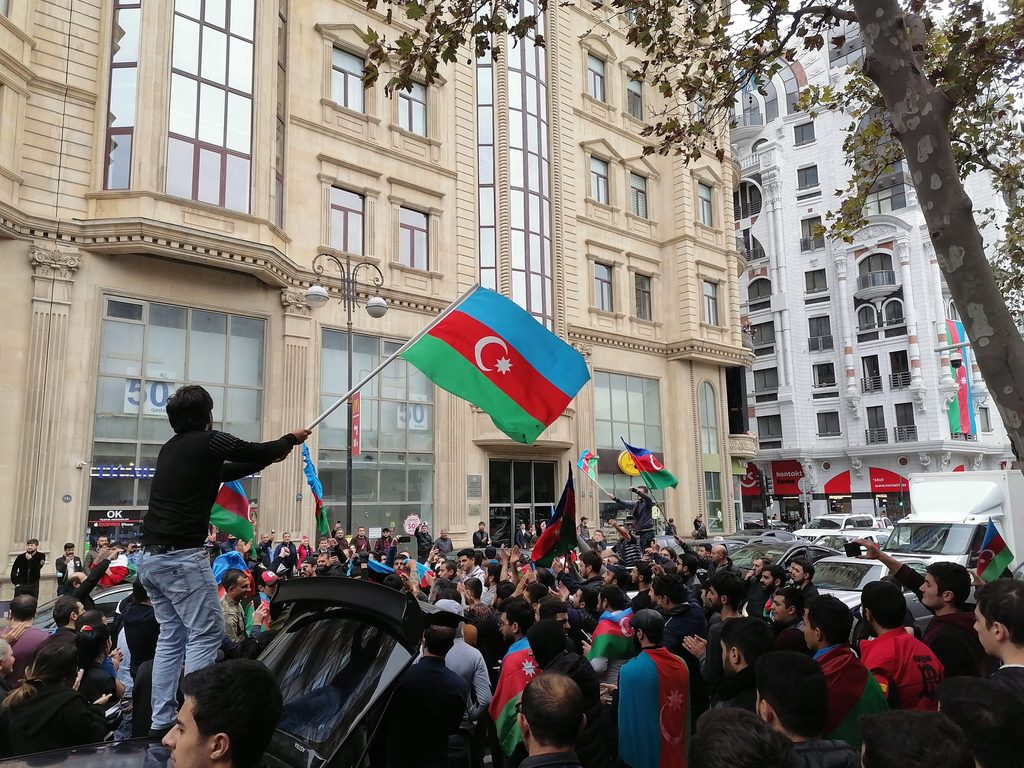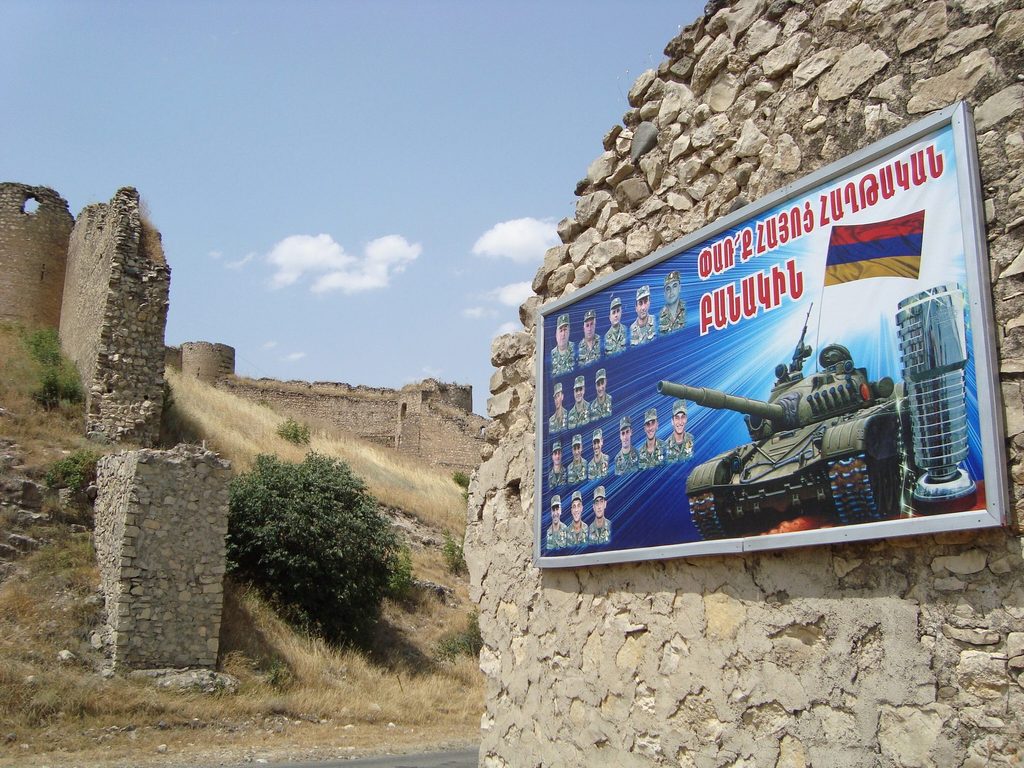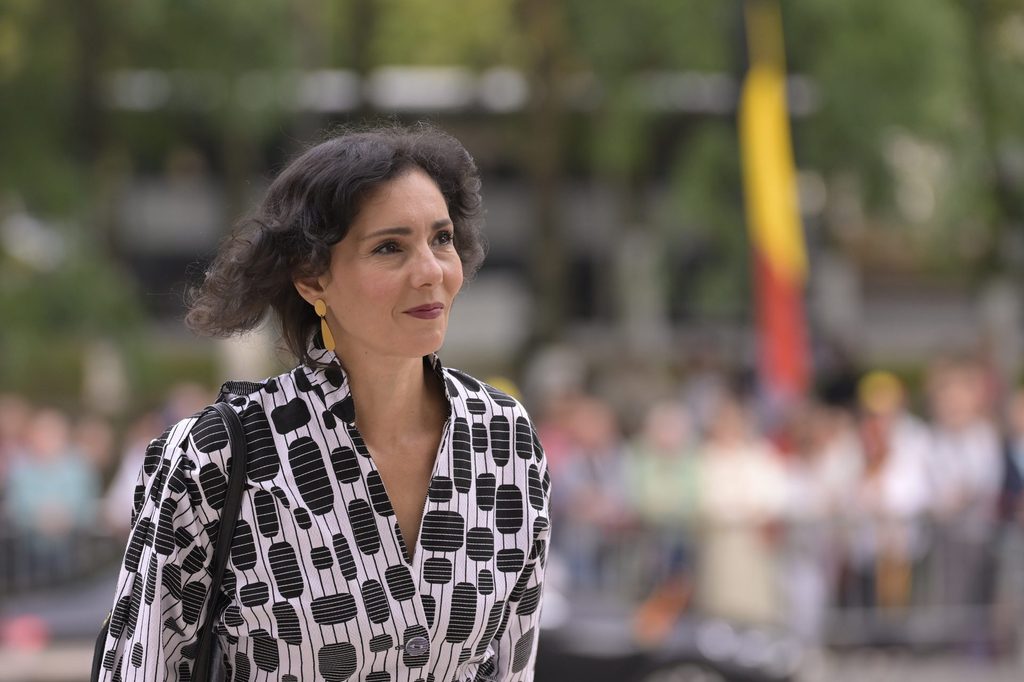The Belgian Minister for Foreign Affairs Hadja Lahbib is flying to the South Caucasus on Monday for a four-day mission to Armenia, Georgia and Azerbaijan, Belga News Agency reports, as tensions over the Nagorno-Karabakh region continue to boil over.
Ahead of the meeting, the Ambassador of Armenia to Belgium Anna Aghadjanian commended recent Belgo-Armenian relations, particularly noting the decision to open a new Belgian embassy in Yerevan.
"I think the decision to open an embassy is the result of treating the region more seriously and [shows] willingness to be involved in processes, it is the result of understanding that Armenia could be a foothold in the region," Aghadjanian told Armenian media Armenpress.
Central to Lahbib's visit will be the tensions between Armenia and Azerbaijan following the 2020 Nagorno-Karabakh war, which saw Azerbaijan take back control of the region from Armenia after a six-week conflict.
Nagorno-Karabakh is a disputed region within Azerbaijani territory with a large Armenian population. For years, it was administered by an unrecognised breakaway entity made up of local Armenians – the Republic of Artsakh. The 44-day war was ended by a ceasefire.

Azerbaijani people celebrate the victory in Karabakh. Credit: Wikimedia Commons
Ambassdor Aghadjanian commented on the recent tensions: "In recent weeks, there’s been a significant enough is enough approach by Europeans – referring to Azerbaijan having gone too far. Some things we’ve been saying, but they wouldn’t believe. We were warning that Azerbaijan will start a war, they were telling us not to overreact and exaggerate."
Tensions persist
Currently, the international community's concerns are focused on the Latchine corridor which links the disputed enclave to Armenia. Baku has been blocking this access route since December on security grounds.
On 21 July, Armenian Prime Minister Nikol Pachinian said that a new war between his country and Azerbaijan was "very likely", accusing Baku of carrying out "genocide" against Armenians in the enclave.
Former ICC prosecutor Luis Moreno Ocampo stated this month that there is a "reasonable basis to believe that genocide is being committed against Armenians." According to CNN, Azerbaijan refuted the claims by saying the reasoning was "fundamentally flawed".

Mayraberd Fortress in Nagorno-Karabakh in 2015. Credit: Flickr / Adam Jones
Last Wednesday, the United Nations Security Council met at Armenia's request to discuss the situation. The blockade imposed by Azerbaijan has led to a deterioration in the humanitarian situation in Nagorno-Karabakh. According to Yerevan and several NGOs, the region's 120,000 inhabitants are facing famine.
The European Union and the United States have called on the Azeri authorities to end the blockade. So too has Russia, which is supposed to monitor compliance with the ceasefire agreement negotiated in 2020. Belgium supports the European line.
Balancing interests
On 12 August, Lahbib held talks with her Armenian counterpart, Ararat Mirzoyan. "It is urgent to lift the blockade for humanitarian reasons," she wrote on social media. The head of Belgian diplomacy will meet Mirzoyan again on Tuesday.
After the war broke out in 2020, Belgium donated a large sum of money to a recovery centre for wounded Armenian soldiers, which Lahbib is due to visit during her trip.
Lahbib will also meet the Azeri Foreign Minister Jehyun Bayramov on Wednesday. In a previous meeting in September last year, the two foreign ministers discussed cooperation in the field of energy and the importance of the Southern Gas Corridor.

